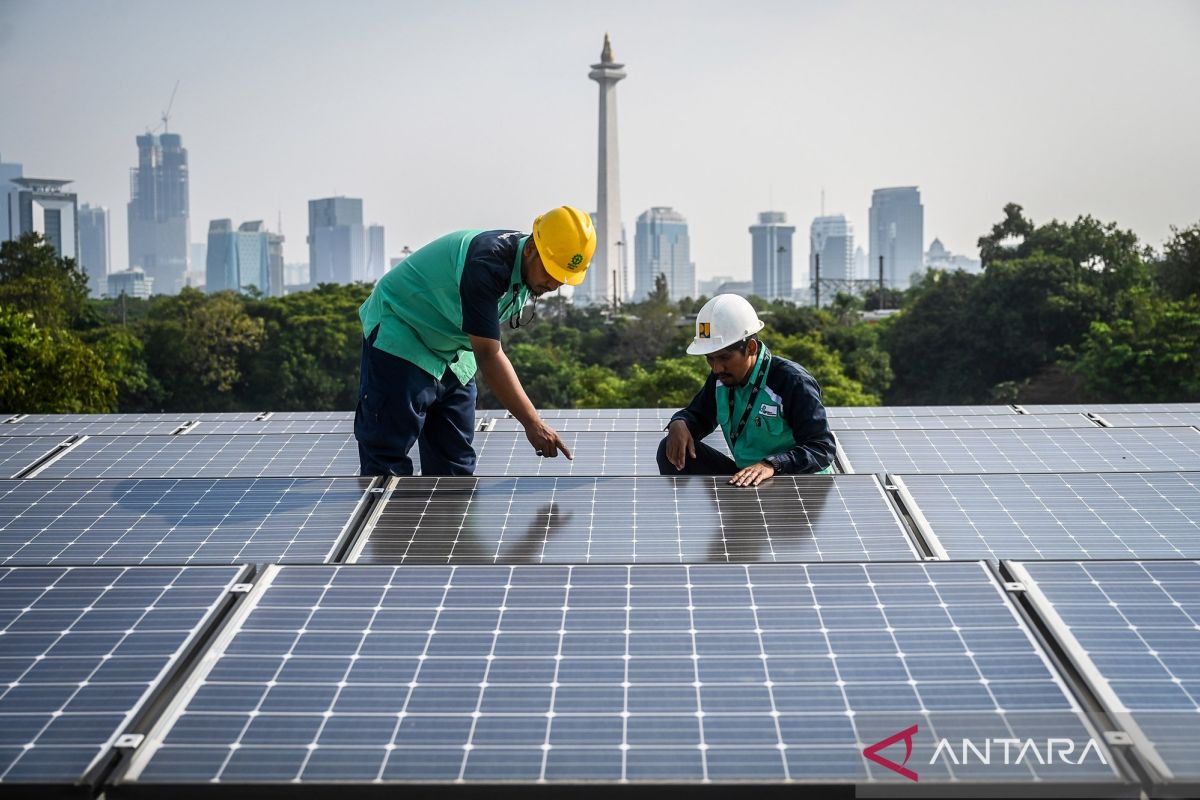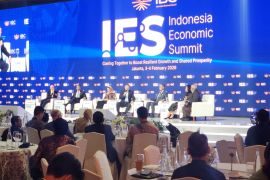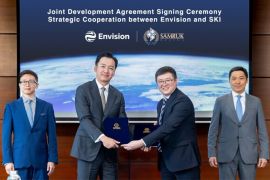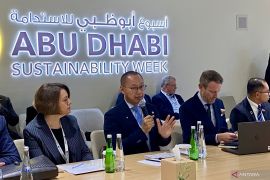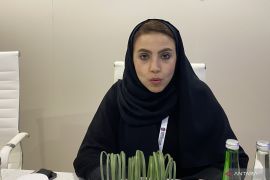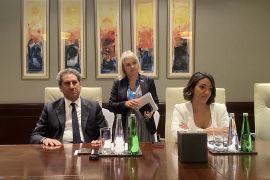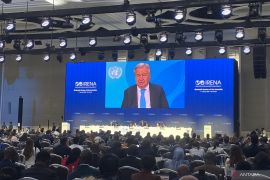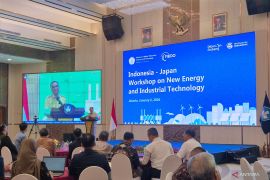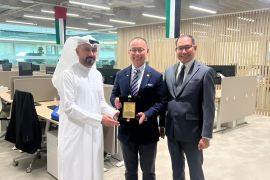The targets have been included in several documents and policies, including the National Energy General Plan (RUEN) and the Electricity Supply General Plan (RUPTL).
Under the RUEN, Indonesia is aiming to increase the renewable energy share in the total energy mix to 23 percent by 2025 and 31 percent by 2050. The target includes several renewable energy sources such as solar, wind power, bioenergy, hydropower, and geothermal energy.
Furthermore, in the RUPTL, Indonesia has set targets for the development of renewable energy capacity for certain periods. For example, the 2021–2030 RUPTL lays down the target for significant development of renewable energy capacity, including solar power, wind power, and bioenergy projects.
By increasing the use of renewable energy, Indonesia is also realizing its commitment to contribute to global efforts to reduce greenhouse gas emissions by meeting the Nationally Determined Contributions (NDCs) target under the Paris Agreement.
The country is making efforts to accelerate the energy transition and slash carbon emissions through several policies that promote the development of renewable energy, including fiscal incentives, financing support, and regulations that support investments.
Indonesia is also implementing mandatory policies that require the use of renewable energy in the electricity and fuel sectors, including the obligation to mix biofuels with fossil fuels.
Expansion of renewable energy projects
Indonesia's commitment to expanding renewable energy capacity and strengthening its position as a major player in the global renewable energy sector is being realized through cooperation with other countries, including those in Africa.
Africa has huge energy capacity, covering a variety of energy resources, both renewable and non-renewable. Tapping this potential is very important because the energy needs of the continent are continuing to increase and meeting them is key for driving economic growth.
Many countries in Africa, especially those in the northern and eastern regions, get high solar radiation, making them ideal for solar power plants. Furthermore, Africa's vast agricultural and forest areas can be used to produce biomass, such as crop residues, agricultural waste, and wood.
In addition, several countries in East Africa have significant geothermal potential that can be utilized to produce clean energy.
When it comes to non-renewable energy sources, countries such as Nigeria, Angola, and Libya are major oil producers. Then, Algeria and Mozambique have great potential for gas exports. Zimbabwe and Tanzania in Southern Africa also have significant coal reserves.
Despite the abundant energy resources, many parts of Africa lack adequate energy infrastructure.
Africa has a large need for investment in energy infrastructure and technology. With its capabilities in the renewable energy sector, Indonesia can cooperate with African countries to develop renewable energy projects.
During a panel discussion at the 2nd Indonesia-Africa Forum (IAF) in Bali on September 3, 2024, national energy director at the Ministry of Mineral Resources and Energy of Mozambique, Marcelina Mataveia, highlighted that her country has abundant mineral resources.
For the next decade, Mozambique plans to provide 2.5 gigawatts of new generator capacity, which will be made available through the operation of several new power plants such as a gas-fired power plant, which will generate 450 megawatts of power, and the nation's first wind power plant that will generate 120 megawatts.
The Eastern African country will also build a hydropower plant with a 1,500-megawatt capacity. A legal framework prioritizing public-private partnerships has also been prepared to attract more investment in the energy sector.
Mataveia noted that Indonesia has vast experience in gas industry development. For Mozambique, this provides a big opportunity to exchange experience and learnings.
To this end, she said, Mozambique hopes to forge cooperation with Indonesia.
On the same occasion, Cabinet Secretary at the Ministry of Energy and Petroleum of Kenya, J. Opiyo Wandayi, said that his country is continuing to advance its energy transition toward clean energy. The total installed capacity of renewable energy power plants in the country is around 3,100 megawatts, with 40 percent of the energy sourced from geothermal sources.
He further said that Kenya's geothermal energy potential is estimated to be 10 thousand megawatts, though only about 950 megawatts have been installed. The country is also aspiring to script a 100-percent transition to green energy by 2030. Currently, the transition has reached 93 percent.
He noted that the tough task of achieving the remaining 7 percentage points — mainly by installing thermal power plants — could be realized through partnership with Indonesia.
New energy partnerships
The opportunities from IAF 2024, which functioned as an entry gate for business players in Indonesia to build strategic cooperation with African countries by optimizing trade potential and business transactions, have also been utilized by the Indonesian Ministry of Energy and Mineral Resources.
Secretary general of the ministry, Dadan Kusdiana, made two offers after learning of the potential for downstreaming the minerals, especially lithium, that Mozambique and Zimbabwe have.
The first offer is to share experiences and the second is to establish a closer partnership in the long term to accelerate the economic growth of Indonesia and Africa.
Kusdiana also discussed achievements in biodiesel development to cut dependence on fossil fuels. Indonesia currently mixes 35 percent palm oil-based biodiesel with diesel fuel, and is preparing to increase it to 40 percent next year.
To reach net zero emissions by 2060, Indonesia is also revising several regulations, including the renewable energy law, and expanding cooperation with developed countries, especially in technology and financing.
According to the Ministry of Energy and Mineral Resources, Indonesia's cooperation with African countries in the energy sector includes oil and gas exploration, mining exploration, renewable energy, as well as geothermal cooperation with Kenya. With Tanzania, the cooperation focuses on oil exploration, capacity development, and energy source development.
Meanwhile, Madagascar is working with state-owned tin producer PT Timah in chrome exploration and plans to expand it to the renewable energy sector. Business-to-business (B2B) collaborations are also being carried out by several Indonesian companies, such as PT Wijaya Karya and PT LEN Energy, which are involved in power generation projects in Africa.
President director of Pertamina, Nicke Widyawati, said that the state-owned oil and gas company is ready to build a strong energy cooperation framework to meet energy needs, which are continuing to increase, and contribute to the sustainable development goals.
Pertamina has expanded its coverage in Africa since 2013. In the upstream oil and gas business sector, the company has a footprint in several African countries, such as Algeria, Gabon, Nigeria, Angola, Namibia, and Tanzania.
Meanwhile, in the shipping sector, there are three main ports in Algeria, Nigeria, and Angola, and that serve routes to Egypt, Algeria, Nigeria, South Africa, Tanzania, Djibouti, and Gibraltar.
Currently, Pertamina is focusing on expansion in Kenya to develop geothermal blocks by managing the entire process chain upstream to downstream — from drilling to geothermal power generation. In South Africa, the company is offering renewable energy solutions through gas-to-power projects.
At the IAF 2024, the state-run company also signed a memorandum of understanding (MoU) with the Tanzania Petroleum Development Corporation (TPDC).
The cooperation includes a knowledge exchange program, capacity building, and collaborative research efforts that can boost capabilities in adopting and implementing sustainable energy practices. The two companies also explored investment partnership opportunities.
Related news: Low-carbon electricity is solution for regional development: Bappenas
Related news: PLN, German firms explore cooperation in renewable energy infra
Editor: Rahmad Nasution
Copyright © ANTARA 2024
